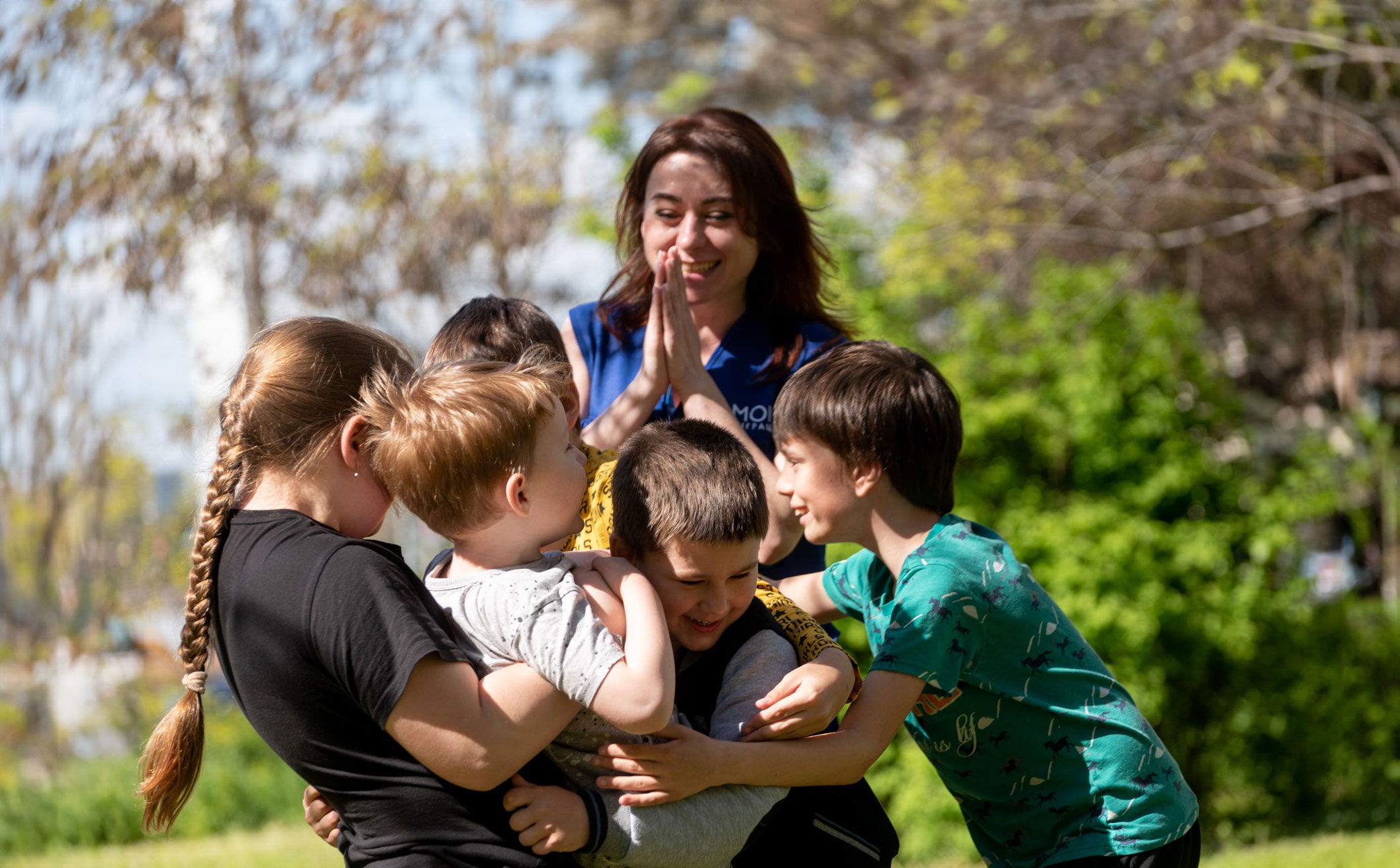Kyiv, 9 October 2023 – Faced with impossible choices as their homes, communities, and sense of security disintegrated before their eyes, the people of Ukraine have endured overwhelming loss.
Today, a staggering statistic casts a long shadow over the war-torn country: over 5 million people remain displaced within Ukraine. The war has profoundly impacted the lives of countless people and communities. While the physical toll of the war is immediately evident, the emotional toll on the families who have been uprooted from their homes or lost their loved ones has hidden and far-reaching consequences.
Unaddressed mental health issues can reverberate for generations and have debilitating effects, ranging from exacerbated mental and emotional stress to difficulty integrating into new communities. The International Organization for Migration (IOM) recognizes the need to actively support the mental and psychosocial wellbeing of people in Ukraine in the hopes of making a difference in the lives of those affected by the war.
Veterans and their unique challenges
Veterans who are trying to reintegrate into civilian life face unique and complex challenges, often requiring specialized support. To help veterans adjust to a new life and address any possible psychosocial stressors, IOM’s Mental Health and Psychosocial Support (MHPSS) unit assists veterans and their families on their journey of recovery through social and cultural activities, art sessions, recreational activities, life skills development, group counseling and awareness raising, among others.
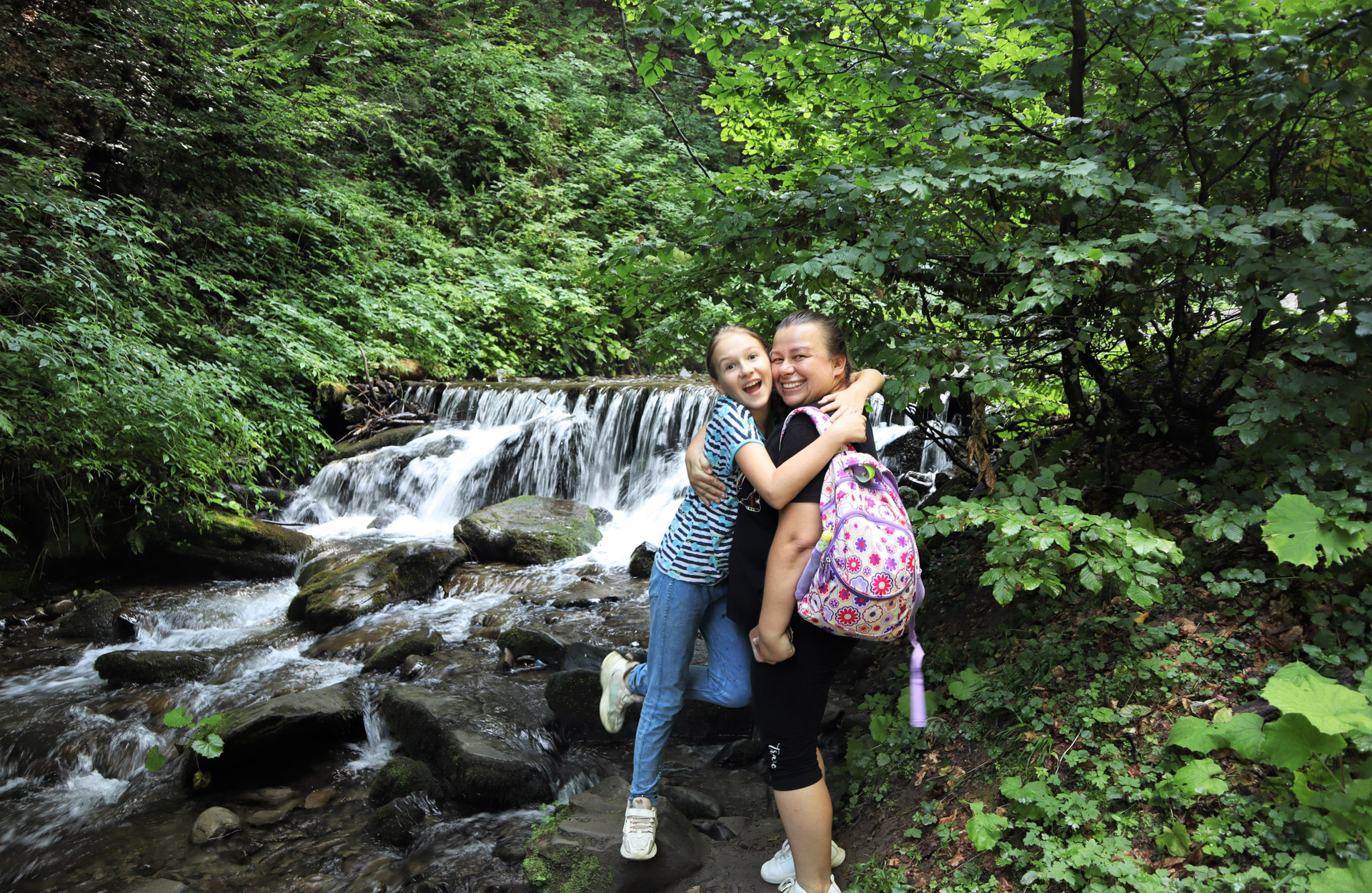
Olesia and her daughter decompress during an IOM-organized event for veterans and their families. Photo: IOM/Daria Dovzhenko
Olesia, a former civil servant and a veteran, was living in the Mykolaiv region with her young daughter, Veronika-Maria, when a shell exploded near their house in January 2023. The distress they endured caused Veronika-Maria to suffer from panic attacks.
Seeking refuge and support, Olesia and Veronika-Maria left for Zakarpattia soon after. There, the family found support through IOM-organized activities such as hiking trips, which helped them establish new social connections and begin creating a new life away from home. Such outings are designed to provide community-based psychosocial support to veterans and their families, and help them find the strength to move forward and connect with members of the communities in which they now live.
Olesia’s story is one of many. The impact of IOM's psychosocial support initiatives also extends to veterans like Oleksandr, who was seriously injured during his military service, resulting in the loss of a leg. Despite the physical and emotional challenges he faces, Oleksandr remains steadfast in his determination to reintegrate into civilian life.
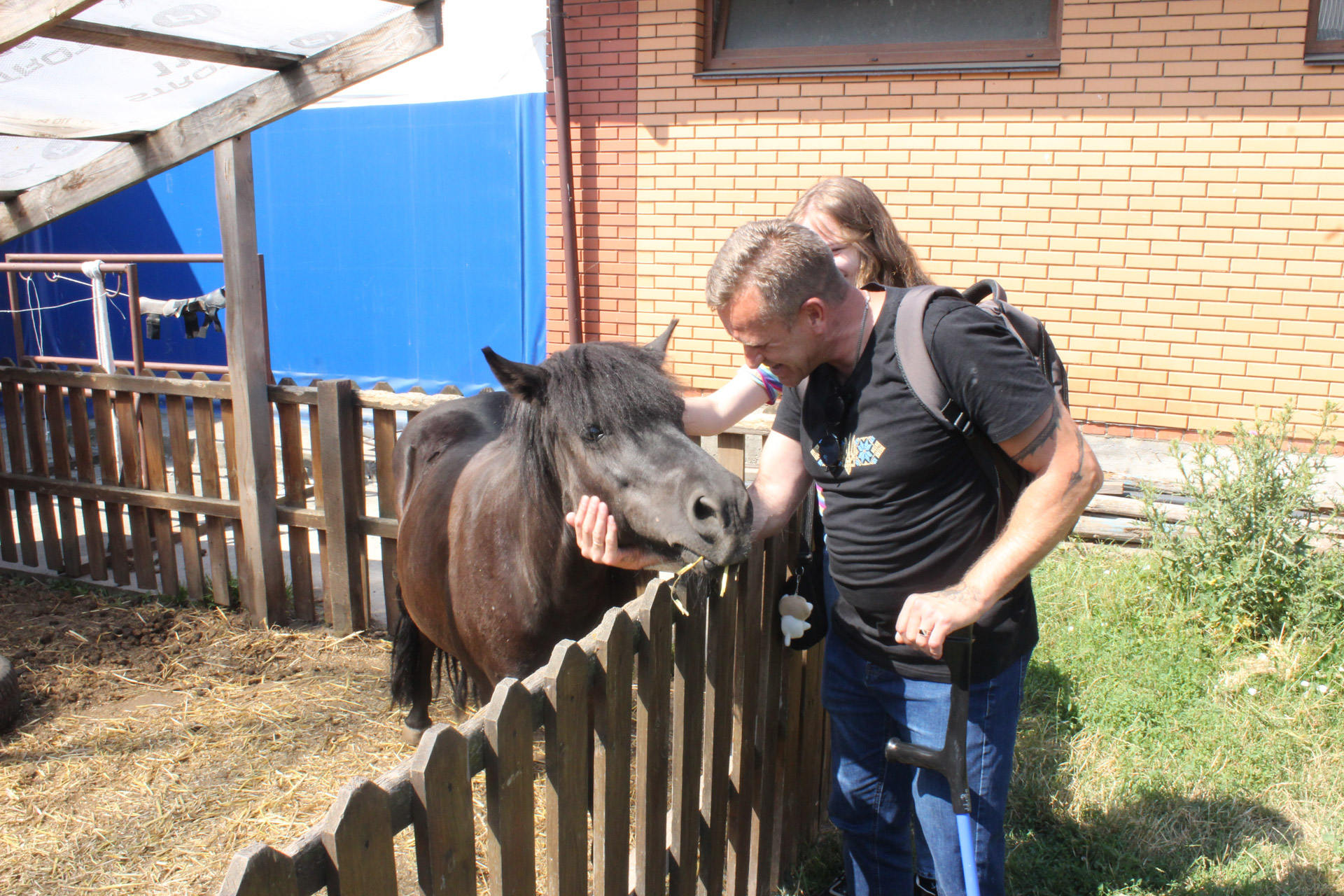
Oleksandr and his daughter participate in a horseback-riding session organized by IOM Ukraine for veterans and their families. Photo: IOM/Maryna Orekhova
Through a horseback-riding session – another one of IOM’s psychosocial support activities – Oleksandr and his teenage daughter Karina could alleviate stress and anxiety, often associated with reintegrating into civilian life. IOM staff work with horseback riding trainers who specialize in providing lessons to vulnerable people. The lessons are followed by an awareness session on mental health, stress management and other related topics. These activities provide veterans with opportunities to reconnect with their families and strengthen their psychosocial wellbeing.
Looking ahead, Oleksandr is optimistic about his future. With Karina heading to university soon, he aspires to start his own business and become more involved in his community.
Empowering displaced children through play
Stress caused by war, displacement and the need to integrate into new communities often negatively impacts the physical and mental health of adults and children alike. IOM organizes activities that help build overall resilience for displaced families while giving children the much-needed space to decompress and just be kids.
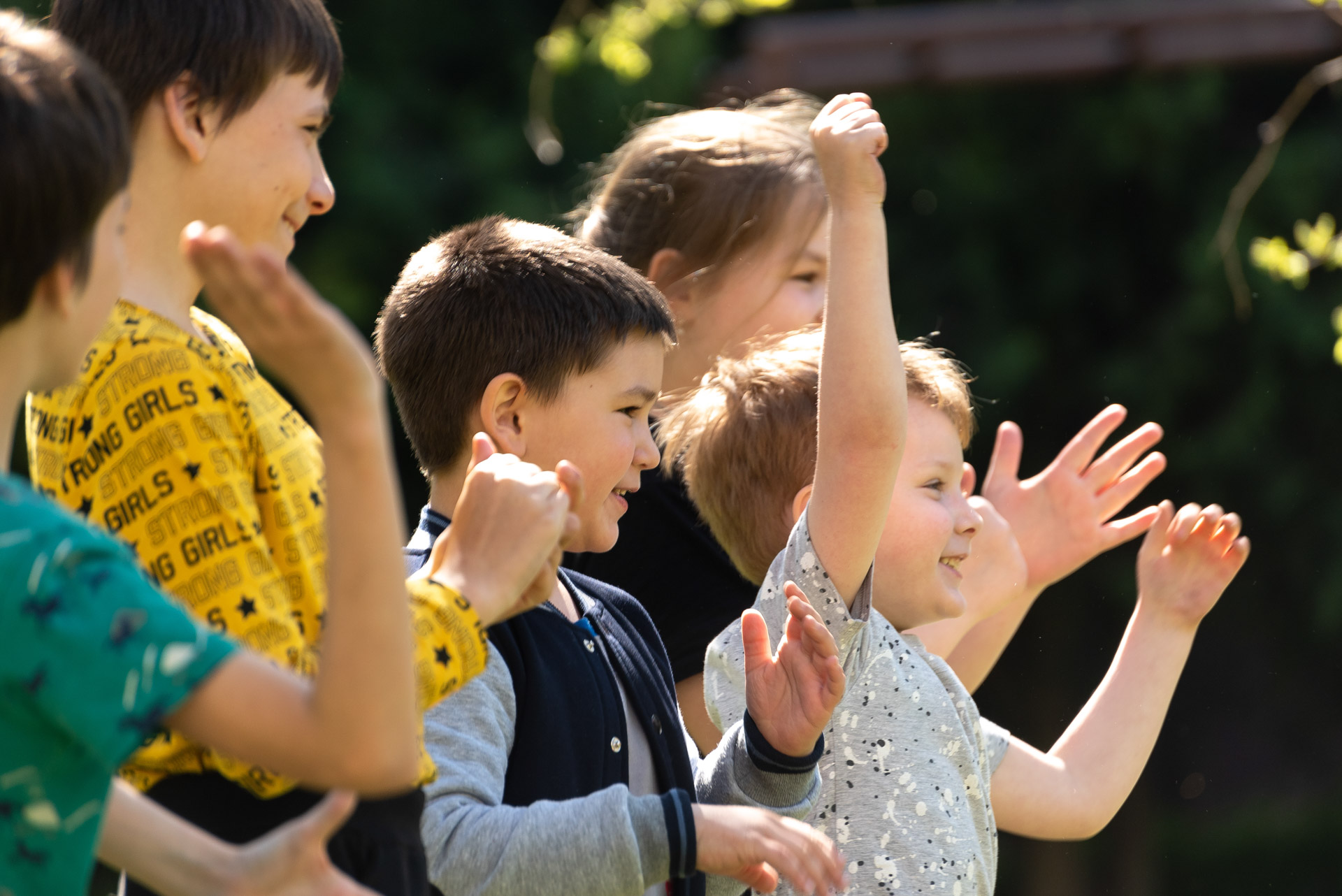
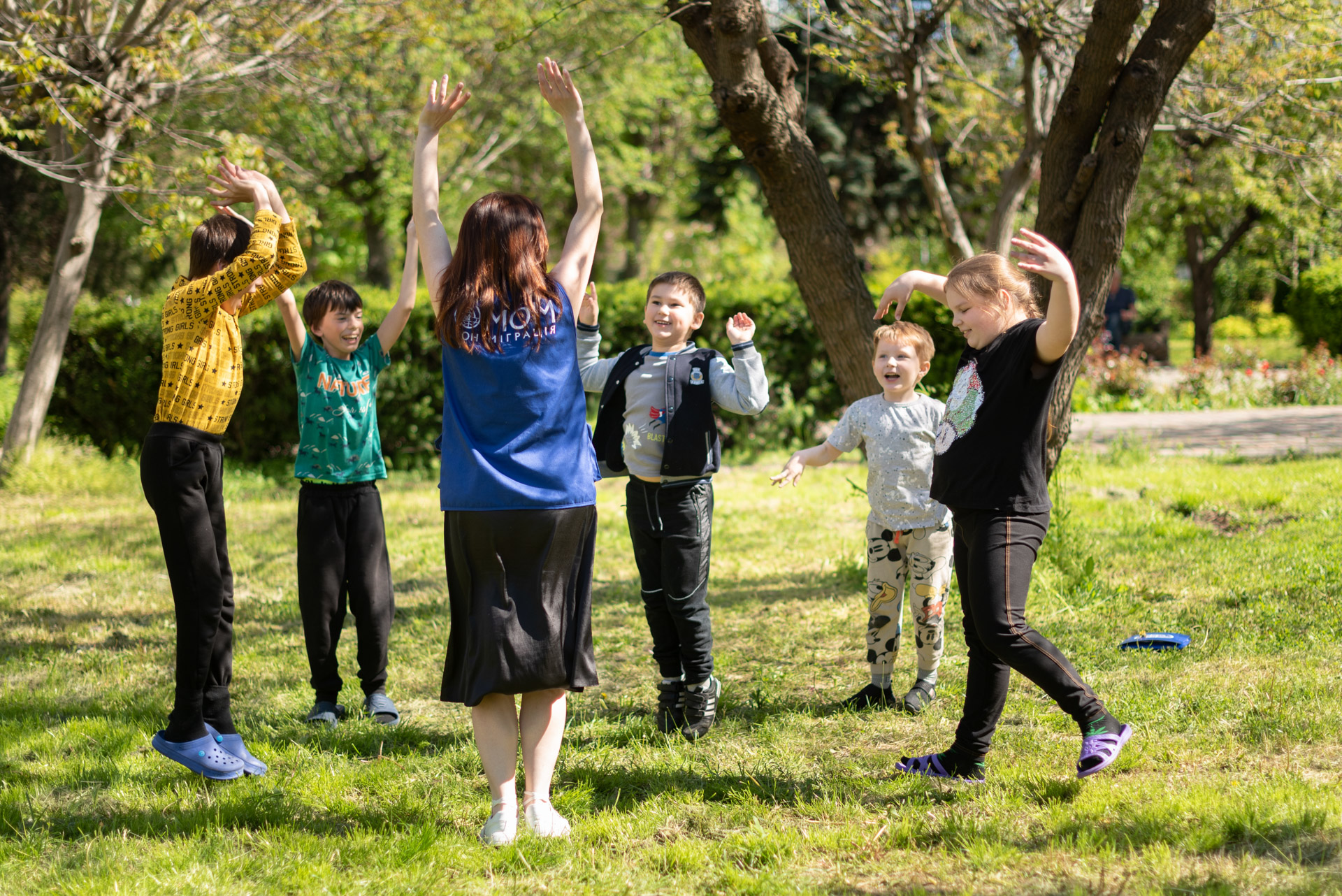
A group of children participate in an activity for displaced families organized by IOM in Odesa, Ukraine. Photos: IOM/Stanislav Kalach
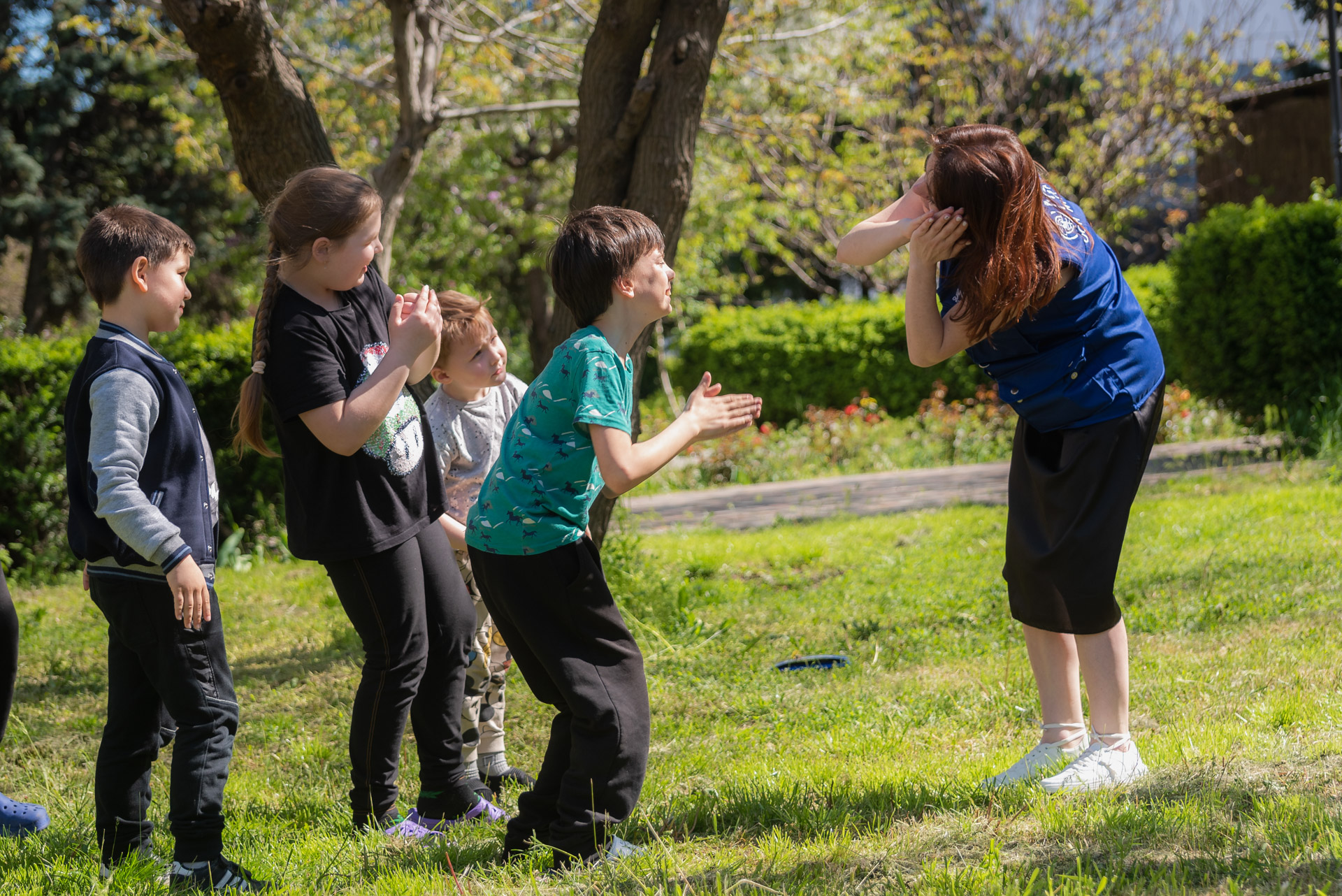
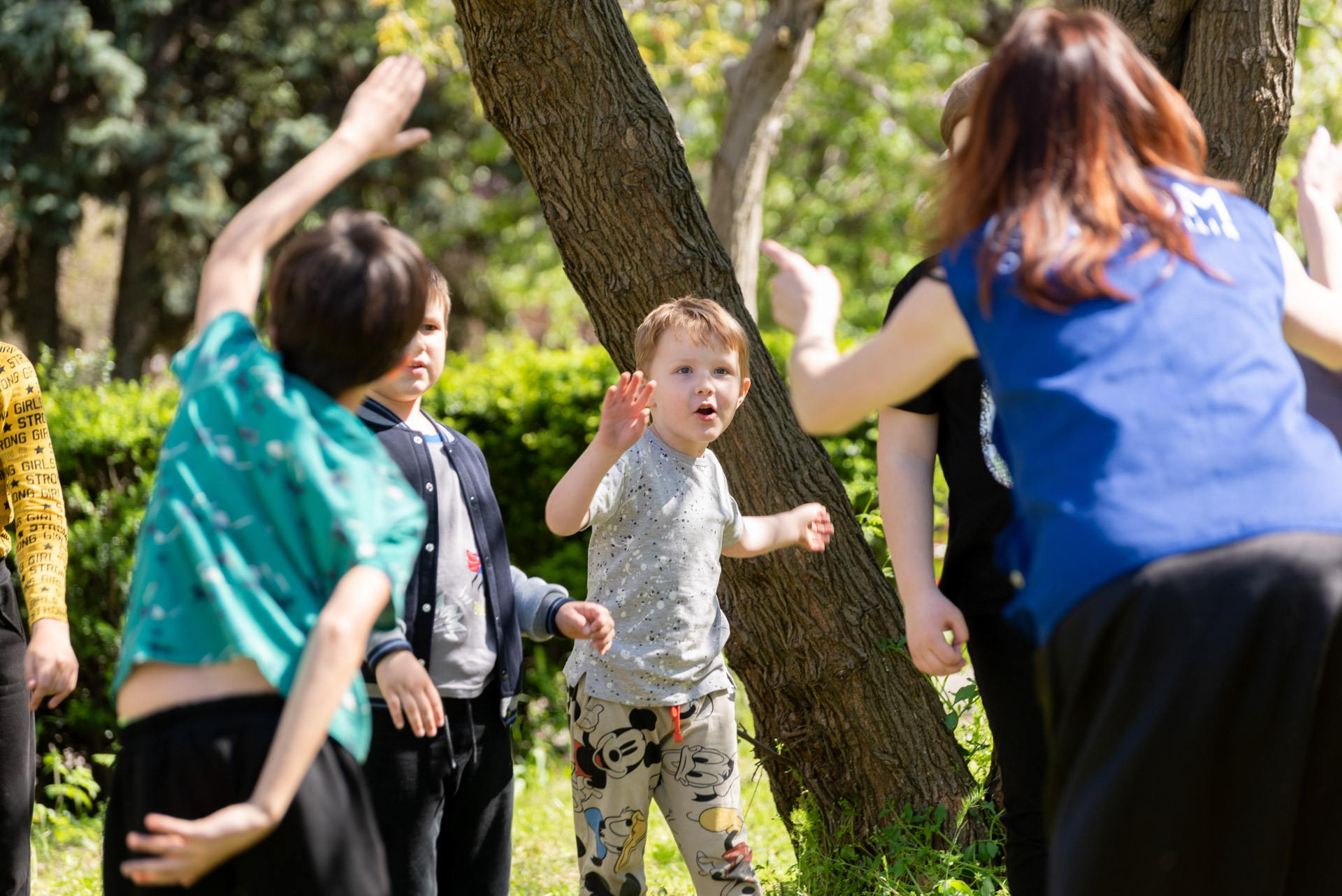
During a time of war and uncertainty, managing a child’s fears can be overwhelming for parents. Svitlana, originally from Kherson, tried to shield her five-year-old son Illia from her own emotions to spare him unnecessary worries.
However, as the shelling drew dangerously close to their home in Kherson, Illia’s words, “Mom, I am so scared!” forced Svitlana to make a difficult choice to flee to Odesa. There, Svitlana was able to join an emotional support group offered by IOM. These group sessions help parents gain insights about stress management techniques and offer a chance for self-reflection – a rare opportunity amid the multitude of challenges faced in displacement.
“I never truly asked myself what my son really needs until now. It's clear that he craves more freedom,” Svitlana explains. “Now, I want to make sure that my control over him doesn't become excessive.” This newfound understanding is helping parents like Svitlana to navigate the complex terrain of parenting during trying times.
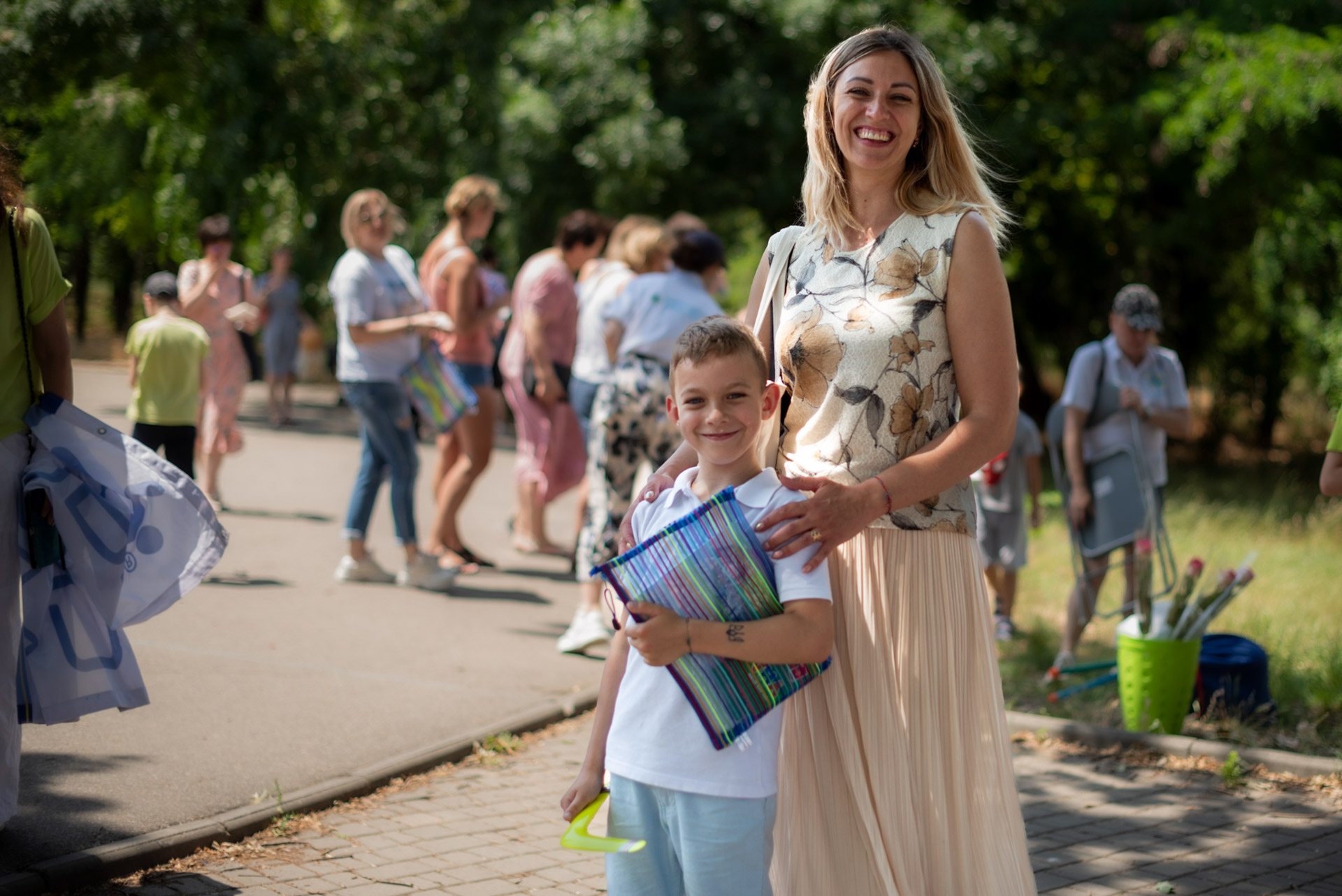
Svitlana and her son Illia find support alongside other families displaced by the war. Photo: IOM/Stanislav Kalach
Since the start of the full-scale war in Ukraine, IOM has recognized the need for prioritized support of mental health. Between 24 February 2022 and September 2023, IOM provided over 115,000 mental health and psychosocial support services to individuals and families to cope with the challenges of war, displacement and integration into new communities, paving the way for longer-term recovery, reconnection and wellbeing.
Written by Anna Tsybko, IOM Ukraine.
